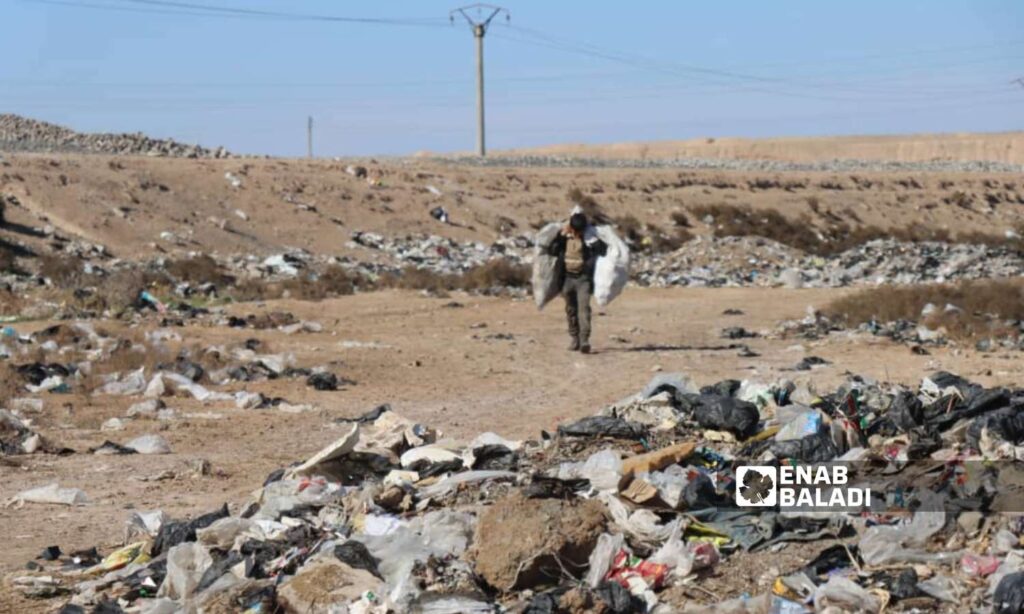The Autonomous Administration of North and East Syria (AANES) issued a decision to legally address the phenomenon of scavenging in garbage containers and spreading trash in public streets and parks in the city of Raqqa, aiming to limit the spread of this behavior.
On Thursday, June 27, AANES stated that its decision was based on a letter from the Local Administration Authority in Raqqa, following the widespread occurrence of this phenomenon and “the exploitation of children by some individuals for their own interests, leaving a negative impact on the city.”
The decision stipulated a ban on scavenging in Raqqa and the exploitation of children and women.
The second clause of the decision included sentencing offenders to imprisonment from one to six months and a fine ranging between 100,000 and 1 million Syrian pounds. The punishment is intensified in case of repeated offenses, and any vehicle caught in the act will be confiscated.
Anyone who intervenes, incites, or lures children, women, or men to scavenge and spread trash for their benefit will be penalized.
AANES stated it would seize any vehicle caught in the act as a criminal tool and subject it to the fine mentioned in the second clause of the decision. In case of repetition, the vehicle will be confiscated.
Scavenging is prevalent throughout Syrian regions, coinciding with deteriorating economic conditions that Syrians are experiencing.
In Syria, 16.7 million people need humanitarian assistance, an increase of 9% from 2023, according to estimates by the United Nations High Commissioner for Refugees (UNHCR).
About 80% of the Syrian population will need some form of humanitarian aid in 2024, according to a statistic published on February 12 by the World Food Programme (WFP) about the number of people suffering from food insecurity in Syria.
Approximately 55% of the Syrian population or 12.9 million people suffer from food insecurity, with 3.1 million severely affected.
In a special interview with Al-Arabiya TV channel in May, UN Special Envoy for Syria Geir Pedersen conducted a quick survey of the major unresolved issues in the Syrian file, starting with the issue of detainees and missing persons, the economic and humanitarian crisis, and the presence of nearly 12 million internally displaced persons.
He said, “Assad cannot determine the outcome of the conflict in Syria, nor can the Russians, Iranians, Turks, or Americans, nor anyone else,” considering the situation in Syria “extremely dire” with about 16.9 million in need of humanitarian aid and nine out of ten people living in poverty.

